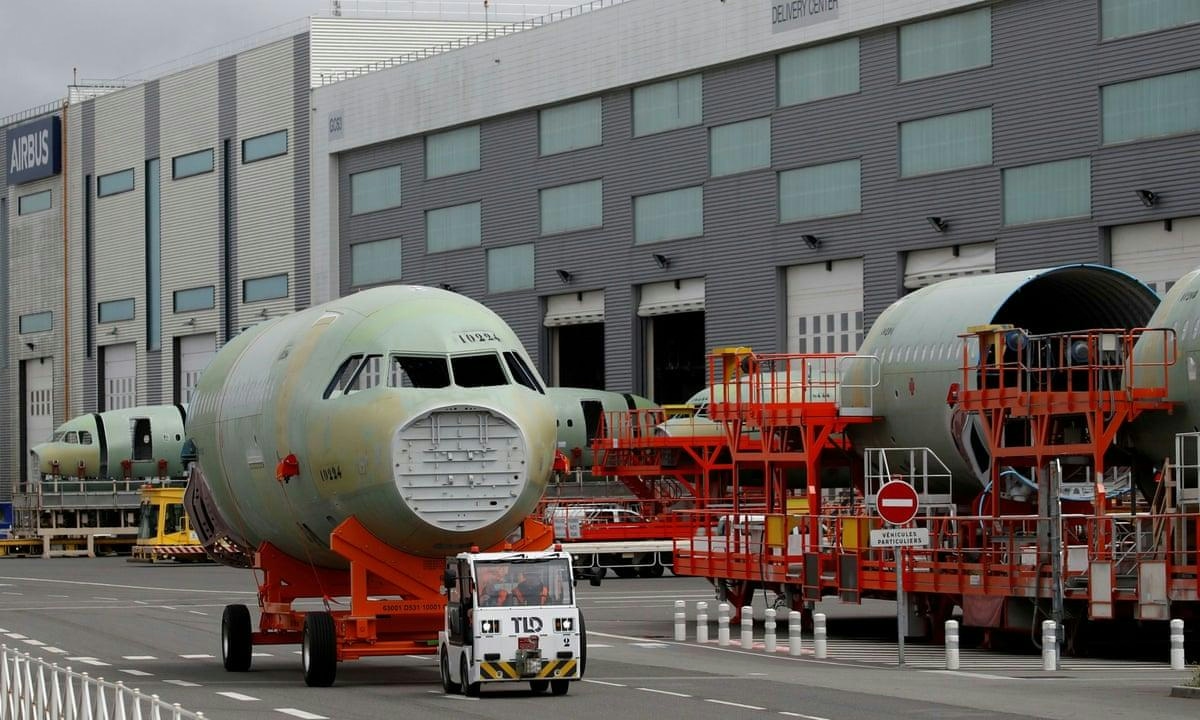AeroGenie — Your Intelligent Copilot.
Trending
Categories
Airbus Boosts Supplier Confidence and Targets 820 Jet Deliveries Amid European Aviation Growth

Airbus Boosts Supplier Confidence and Targets 820 Jet Deliveries Amid European Aviation Growth
Airbus has expressed renewed optimism in the aviation sector, reporting enhanced supplier confidence and improved operational performance as it sets an ambitious target to deliver approximately 820 aircraft in 2025. This represents a 7% increase compared to the previous year and reflects the ongoing recovery of the global aviation market, with airlines actively seeking to expand and modernize their fleets in anticipation of rising passenger demand.
Meeting Rising Demand Despite Supply Chain Challenges
The company’s delivery target underscores both the resurgence in airline demand and Airbus’s commitment to stabilizing its production pipeline. A key factor in this progress has been improved coordination with suppliers, which has been critical following several years of production difficulties. Florent Massou dit Labaquere, Airbus’s Executive Vice-President for Operations, highlighted that suppliers are now better equipped to support the company’s current and future production plans, thereby reinforcing confidence throughout the industry.
Nonetheless, Airbus faces ongoing challenges, particularly with engine supply constraints from CFM International, which continue to impact the output of the popular A320neo-family jets. Despite these obstacles, Airbus remains confident in its ability to meet its delivery goals, citing strengthened supplier relationships and operational flexibility as vital components in overcoming these hurdles.
Competitive Edge Over Boeing
Airbus’s resilience is further demonstrated by its market performance relative to Boeing. While Boeing contends with manufacturing setbacks and labor strikes, Airbus’s A320 model has recently become the most delivered commercial jet in history, surpassing Boeing’s 737. Market analysts attribute this shift to Airbus’s competitive pricing strategy and its capacity to navigate industry-wide engine supply challenges, factors that have contributed to a growing market preference for Airbus aircraft.
Long-Term Expansion and Sustainability Goals
Looking forward, Airbus maintains its long-term ambition to increase production to 75 narrow-body jets per month by 2027, a target that has been postponed from 2025 due to persistent supply chain constraints. The A320neo-family remains central to this strategy, favored for its fuel efficiency and environmental benefits, aligning with airlines’ increasing focus on sustainability and cost-effectiveness.
Global Production Expansion in the U.S. and China
To support its growth trajectory, Airbus is expanding its manufacturing footprint internationally. The company plans to open a second assembly line in Mobile, Alabama, dedicated to A320neo-family jets, thereby enhancing its capacity to meet demand in North America. A similar expansion is underway in China to serve the rapidly growing Asia-Pacific market. These investments are expected to strengthen Airbus’s global production network and ensure timely deliveries to airlines worldwide.
Outlook
As Airbus continues to navigate supply chain challenges, its reinforced supplier partnerships, strategic global expansions, and competitive product offerings position the company to capitalize on the aviation industry’s recovery. The confidence expressed in meeting the 2025 delivery target signals a positive outlook for airlines and the broader sector, even as Airbus adapts to evolving market dynamics.

Capital A Completes Sale of Aviation Business to AirAsia X

Four Gateway Towns to Lake Clark National Park

PRM Assist Secures €500,000 in Funding

Should Travelers Pay More for Human Support When Plans Go Wrong?

InterGlobe Aviation Shares Rise 4.3% Following January Portfolio Rebalancing

Key Market Segments Shaping Airline Route Profitability Software

Locatory.com Gains Traction Among Aviation MROs and Suppliers

JetBlue Flight Makes Emergency Landing Following Engine Failure

58 Pilots Graduate from Ethiopian University

The Engine Behind Boeing’s Latest Widebody Aircraft
